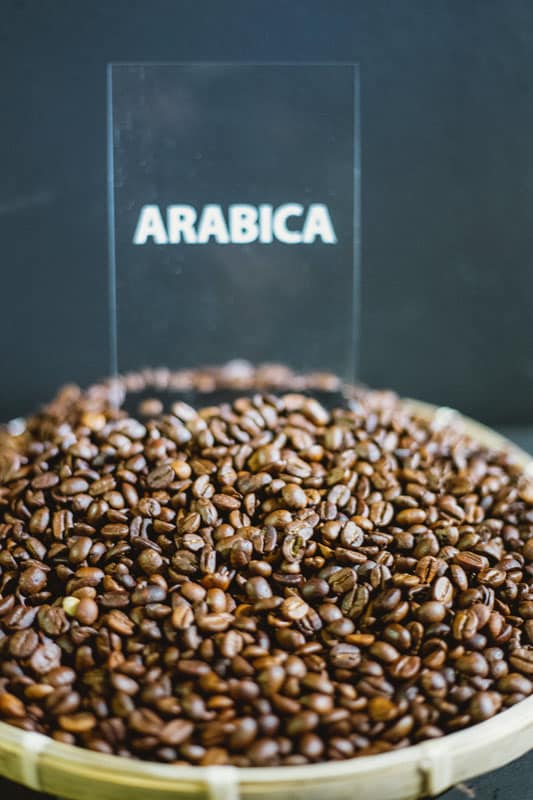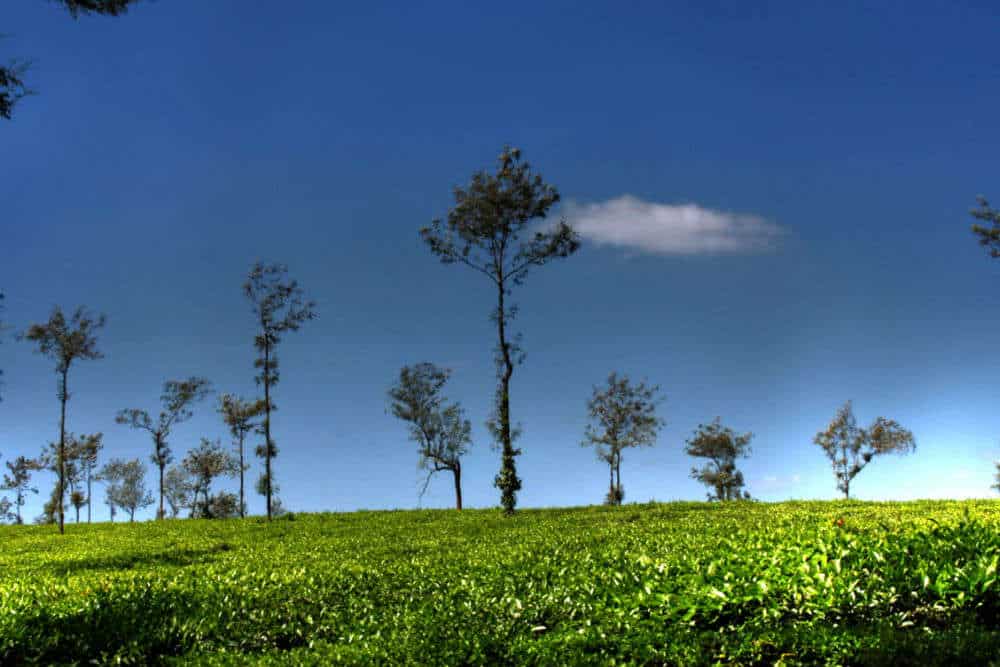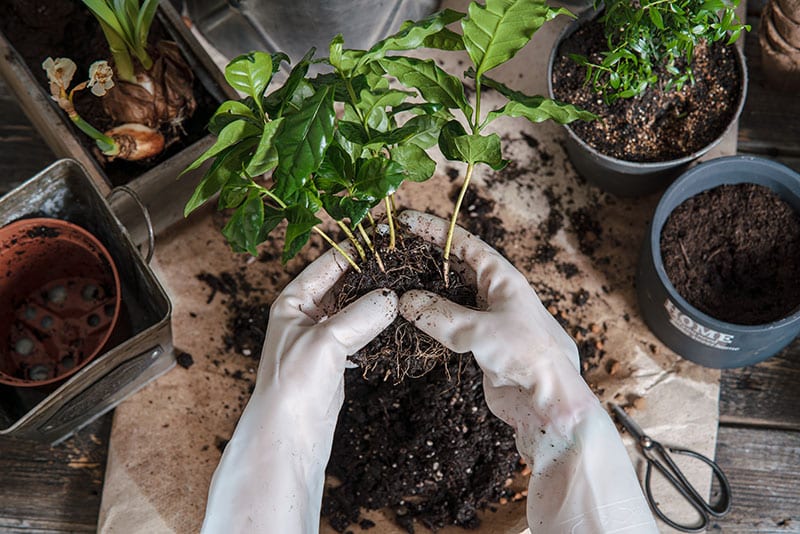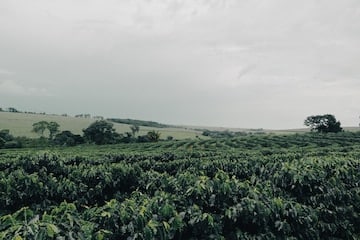If you’ve ever wondered which potted plants like coffee grounds, you’re not alone. Coffee grounds, in particular, contain nitrogen and acid, which are great for plant growth, but they can also be harmful if not handled properly. Fortunately, there are many different plants that can tolerate coffee grounds, and these tips will help you to choose the right ones for your garden.
Nitrogen-loving plants
Coffee grounds are a good way to fertilize potted plants. They are filled with nitrogen, which strengthens the stems of your plants. They also contain potassium and micronutrients that help enhance plant growth. However, you should not pour coffee directly on your plants. It can damage the roots and cause fungal diseases.
If you have a lot of used coffee grounds, you can recycle them by putting them into your compost pile or compost tumbler. This will add nitrogen to the compost. In addition, the organic material will make the soil more biologically active.
You can also put coffee grounds into your potting mix for houseplants. They can be mixed into the soil to increase the level of nitrogen and potassium.
In some cases, you can also use a liquid fertilizer made from coffee grounds. To do this, you will need to strain the liquid through cheesecloth or a nut milk bag. You should then water your plants with the diluted solution. It should steep for several nights before applying to your plants.
Some plants prefer acidic soil, while others prefer alkaline soil. If you’re planning on growing plants that love acidic soil, you can buy fresh coffee grounds. Alternatively, you can make a fertilizing tea with used coffee.
You can also water your plants with diluted cold-brewed coffee. It is best to avoid flavored coffees. While it might be tempting to use a flavored coffee on your plants, you should not do so. The harsh chemicals in these products can damage the leaves of your plants.
If you plan on using a premade houseplant fertilizer, consider how much you plan to use. If you don’t have a lot of extra money to spend, you can still add nitrogen-rich used coffee grounds to the soil.
Acid-loving plants
Adding coffee grounds to your houseplants will give them a boost. Not only are they rich in nitrogen and potassium, they also contain magnesium and minerals. They are a great alternative to chemical fertilizers. They help to retain moisture in the soil and improve the aeration of the soil.
The best thing about using coffee grounds as a fertilizer is that they are cheap. They are also eco-friendly. You can even add used coffee grounds to outdoor compost heaps.
Besides giving your plants a good boost, they can also act as a deterrent to pests and garden weeds. You can also use them as a mulch for your plants. However, you should not dump fresh coffee grounds on the soil. The acidity can stunt the growth of your plants.
There are plenty of other ways to use coffee as a fertilizer. You can add it to your compost pile, mix it into potting soil or use it as a liquid fertilizer. But the key is dilution. A small amount is usually sufficient.
Some plants prefer a neutral pH level while others need an acidic environment. It is important to know which plants will benefit from coffee as a fertilizer.
Some common houseplants that love coffee grounds include philodendrons, African violets and peace lilies. These plants grow best in slightly acidic soil. Besides their sweet pansy-shaped flowers, these plants are also related to Iris, Forget-Me-Not, Bugbane and Crinum. They are found in different colors and shapes. They grow to floor plant height. They can be found from Africa, the Mediterranean Basin, and the southern brazil.
You can also make a fertilizing tea from the coffee grounds. This can be useful for garden plants, vegetable gardens, and even houseplants. A weak solution of the coffee should be diluted with water and applied to your plants.
Composted coffee grounds
Coffee grounds are used to make fertilizers, pesticides and even as mulch. They can be a useful tool in the home garden, but some plants may not appreciate it.
For instance, some houseplants don’t like being buried under too much moisture. While a layer of used coffee grounds can help prevent water penetration, it can also block air circulation. This can lead to yellowed foliage and slow rot.
If you use them, make sure to recycle your unused coffee. The best way to do this is to add them to a compost pile. This will not only give your plants a nutrient boost, it will also reduce household waste.
However, some studies question whether adding coffee grounds directly to the soil is a worthy endeavor. In addition, they can compact over time. In fact, this may be a disadvantage for plants that need looser soil.
Coffee grounds are rich in micronutrients and nitrogen. They are also an excellent deterrent for garden pests. For instance, you can pour them over a plant to deter cats from eating your flowers.
Another interesting benefit of using coffee grounds is that they can improve the quality of your soil. They increase the pH level, which in turn helps increase the amount of nutrients available to plants. It also helps improve the drainage of the soil.
But be careful not to overdo it. Coffee can be too acidic for some plants, so it should be mixed with a more neutral compost material. Some other options include a premade houseplant fertilizer or repotting the plant with a fresh mix of potting soil.
If you want to use your coffee grounds as a compost, make sure to use a small bin that can handle a cup or two of the stuff a week.
Worms
Worms in potted plants can be a good addition. They help to reduce pests and aerate the soil. They can also provide a natural source of nitrogen.
However, they do not last long in potted plants. This is because they need a warm and moist environment to live. They need plenty of room to move around. They also prefer loamy soil. So it’s important to maintain the right balance of worm castings in your soil.
These castings are a rich source of nutrient-rich materials. They are high in potassium, iron, magnesium and calcium. They also have a neutral pH. These compounds will boost plant health and encourage root growth. They can be incorporated into your compost or added directly to your soil.
Worms in potted plants can help by breaking up hard pebbles and loosening up lumpy soil. They are also a great natural deterrent for slugs and snails. They can also change the moisture retention of your plants. They can help to discourage nematodes, a pest that can be harmful to your crops.
They also help to speed up the decomposition of your soil. This helps the compost to be used faster. Depending on your garden, you may be able to use coffee grounds as a fertilizer. These are especially beneficial for acid-loving plants.
Using coffee grounds in your compost is a great way to make your soil healthier. They are a rich source of nitrogen and help to deter pests. They can also be used to provide a slow release fertilizing solution.
The amount of coffee grounds you add to your vermicomposting bin depends on the size of the bin and the number of worms. Typically, a bin that holds about a cup of coffee grounds per week is enough.
Pest control
Coffee grounds have many uses ranging from providing a boost to your coffee plant to repelling slugs. Besides the usual suspects, coffee can be used to deter cats from eating your plants.
Using coffee in the garden is not the best idea. Some studies claim the caffeine contained in the drink can be a health risk to your pets. To mitigate this, consider using diluted coffee as a fertilizer. The most important thing to keep in mind is to make sure you don’t use a fresh cup of coffee on your seeds or seedlings.
Coffee can be a good source of phosphorous and calcium. It can also balance the pH of the soil. But it’s not the only solution to your plant problems. For example, mulching can help keep your soil moist and improve its overall quality. You can even put coffee grounds in your compost pile if you’re a fan of the green thumb.
For a small cost, you can have a plant-powered pest control system. For example, some say the aforementioned worms are the best friends your plant can have. They’re responsible for speeding up the decomposition process. This, in turn, can result in more effective fertilizer. If you want to keep your potted plant happy and healthy, make it a point to put it outside every so often.
For the most part, the best way to keep your plants healthy is to avoid overwatering them. You can achieve this by keeping your pots at a reasonable height and by reducing your watering intervals. In the event that you do need to saturate the soil, use a porous pot to minimize the chances of oversaturating your precious cargo.





